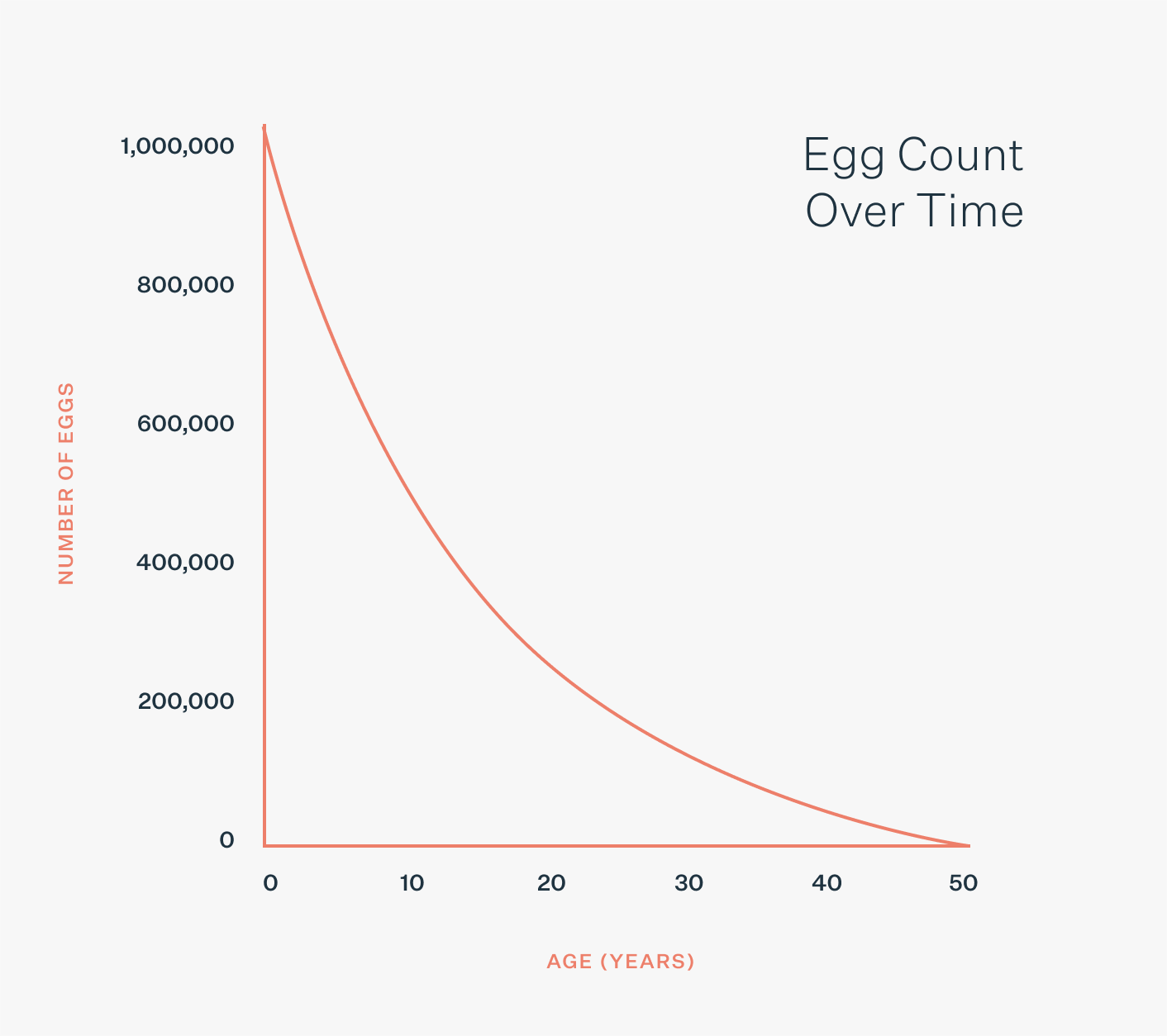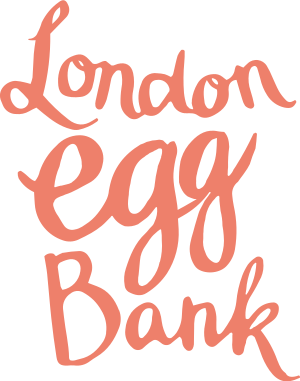Your age is probably the most significant factor affecting whether you’ll get pregnant naturally or not. Women’s fertility decreases with age, as both the number and the quality of eggs reduces.
You will be most fertile in your 20s, but in your 30s fertility gradually declines, with a steeper fall happening after age 35.
What is normal?
You are born with a complete store of eggs, with babies having around 1-2 million potential eggs held in ovarian follicles. But by the time you begin to ovulate you will have a store of between 300,000 and 500,000, as unused potential eggs are naturally reabsorbed by the body over time.

Each month after puberty, a group of follicles (each with a small, immature egg inside) have the potential to respond to hormones, to grow and to ovulate. Although this group are all getting ready for ovulation, usually you’ll only have one egg ovulate each month. Eggs that don’t make it to ovulation dissolve and are reabsorbed.
You’ll probably ovulate between 400 and 500 times in your life, but each time you’ll lose over 1,000 follicles, or potential eggs. This loss accelerates as you get older, and so your original store gets very depleted over time.
As the number of eggs declines, the quality also declines. This can mean that you are less likely to get pregnant, and if you do, you may be more likely to miscarry.
When you’re in the cycle of egg freezing, medication prompts the other eggs to mature, which means your body produces multiple eggs in one cycle from the potential eggs that are otherwise reabsorbed. Collecting these eggs for freezing doesn’t reduce your overall egg count, it just uses more of the eggs you already have.
What’s important for successful egg freezing?
Egg quantity
The number of eggs you have, or your ovarian reserve, determines your fertility potential – what your total remaining egg count might be, and also how many eggs you might be able to freeze during one cycle.
Understanding your ovarian reserve is the starting point to determine your suitability for egg freezing, and to establish this we use two different tests – an AMH (anti-Müllerian hormone) test and an antral follicle count (AFC).
Read more about ovarian reserve
Egg quality
The quantity of eggs you have is important, but egg quality is even more important. When we talk about the quality of an egg, we’re looking at whether the egg is genetically normal or abnormal.
As your ovaries age, they will have an increasing number of ‘abnormal’ eggs, and as the number increases there is less chance of you conceiving with a ‘normal’ egg each month, along with an increased risk of miscarriage and genetic disorders.
Why egg freezing works
Egg freezing lets you freeze your younger, healthier eggs to preserve their quality and allows you the chance to achieve a successful pregnancy when you’re ready to use them. As you get older, your chances of getting pregnant naturally reduces from about 25% each month age 25 to only 5% each month once you reach 40.
Once your eggs are frozen, they stop ageing – even though the rest of you doesn’t. It’s the age of the egg that matters most when it comes to giving yourself a better chance to achieve a successful pregnancy.
